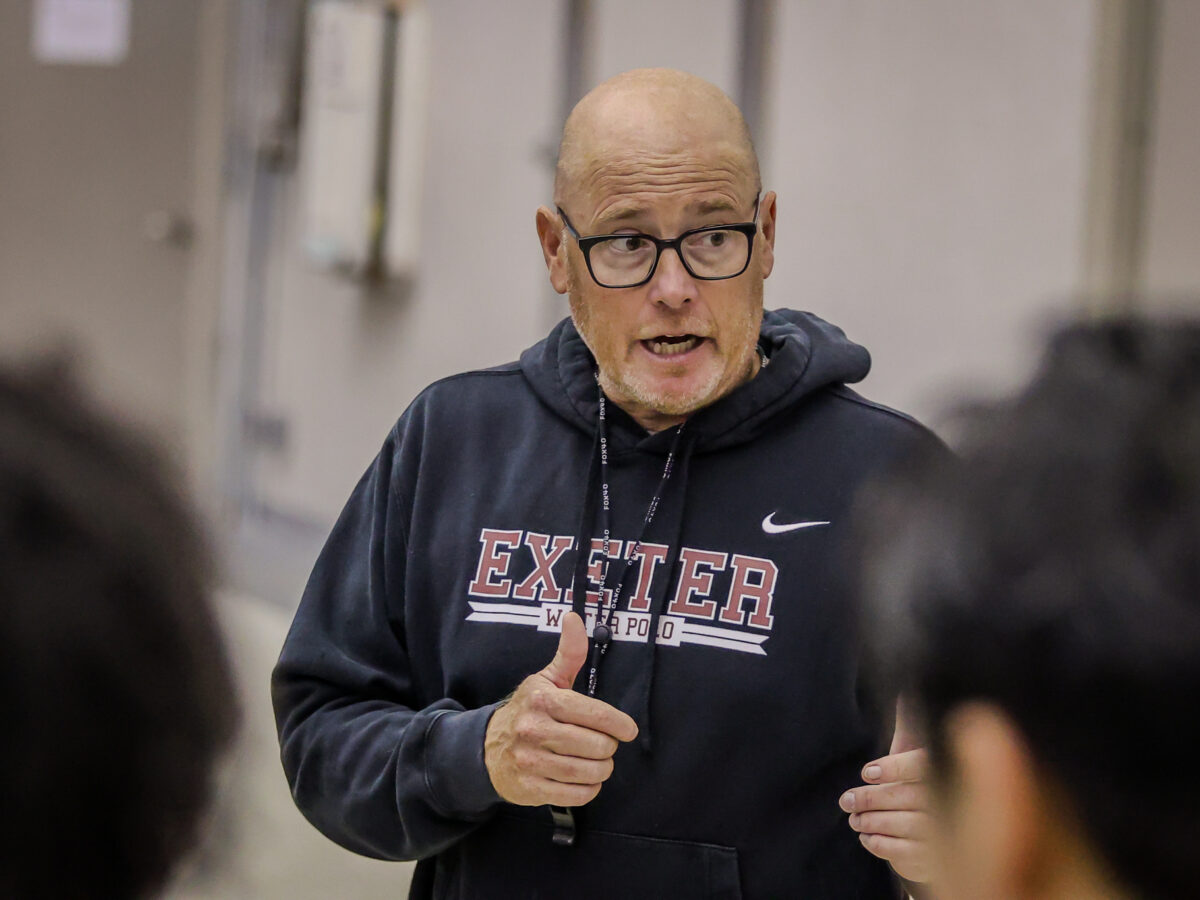Brain training

New Exeter Innovation course teaches mental skills critical for peak performance
Did you ever hear a coach say, “Get your head in the game”? The idea was that by simply focusing your brain, you would play better.
Students in this fall’s new Exeter Innovation course EXI540: Performance and the Brain studied links just like that, connections between the brain’s cognitive functions and an individual’s ability to perform well in various tasks, whether physical, mental or cognitive. Conceived and taught by Instructor in Physical Education Don Mills, the course paired readings at the Harkness table with meaningful activities to focus on real time application of skills and strategies used to build strong systems of success for everyday life at Exeter and beyond.
“Initially students assumed this would be a sports psychology class,” Mills says, “but it really went down a path that impacted their daily personal development. It was interesting to hear how students wanted to work on themselves, put a plan into effect, and learn the science behind training your brain to make the plan work.”
Charles Dobbins ’25 says: “The class was a really eye-opening way to learn about yourself. It was so interesting to learn about how the chemistry in your brain influences the decisions that we make and how it affects long-term health, happiness and demeanor.”
One assignment tasked students with developing a personal performance-enhancement plan. They identified the formation of a habit — how it is constructed, maintained and broken — and experimented and implemented practical techniques to design personal systems of growth. In an era when distractions like smartphones and social media are consistently competing for more attention, this led several students to pursue a path to decreased screen time, less procrastination and more production.
“I was using strategies we read about and discussed in class in an attempt to not be on my phone as much,” Dobbins says. “I was trying to make the habit of grabbing my phone be unattractive and used some apps that take away the instant gratification of social media. I was able to decrease my weekly average screen time by two hours.”
For Kai Dunham ’25, “This class allowed me to take care of myself while learning how to be successful. … It was easy to participate around the table because the content applies to everyone — everyone has good habits, bad habits, and things they can better understand about themselves.”
Mills concluded: “This class featured students that hold various passions and I hope they were all able to leave this class with tools to build success.”
This article was first published in the winter 2025 issue of The Exeter Bulletin.